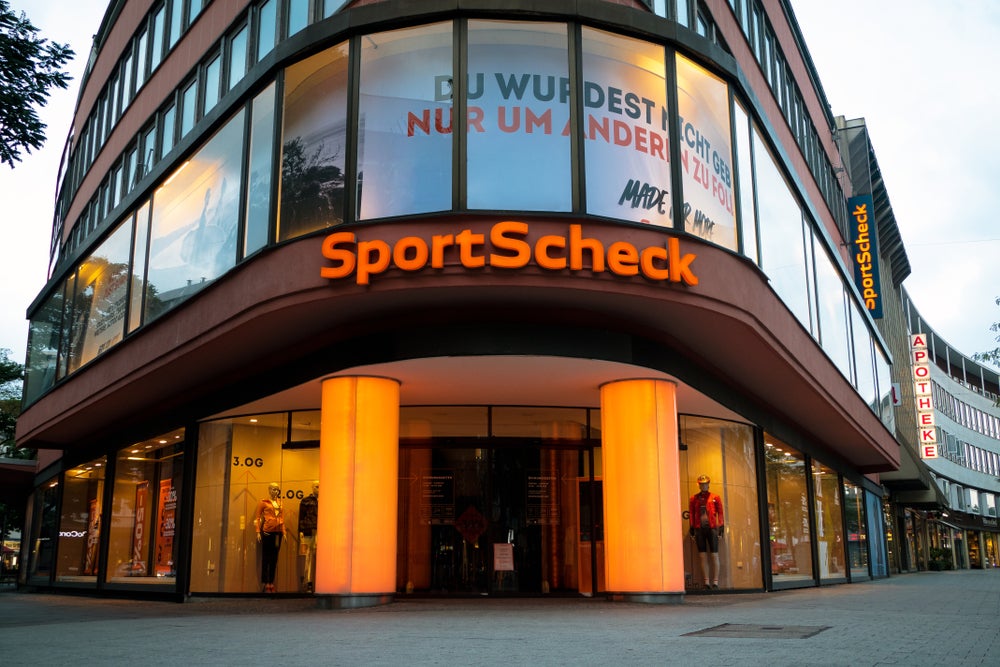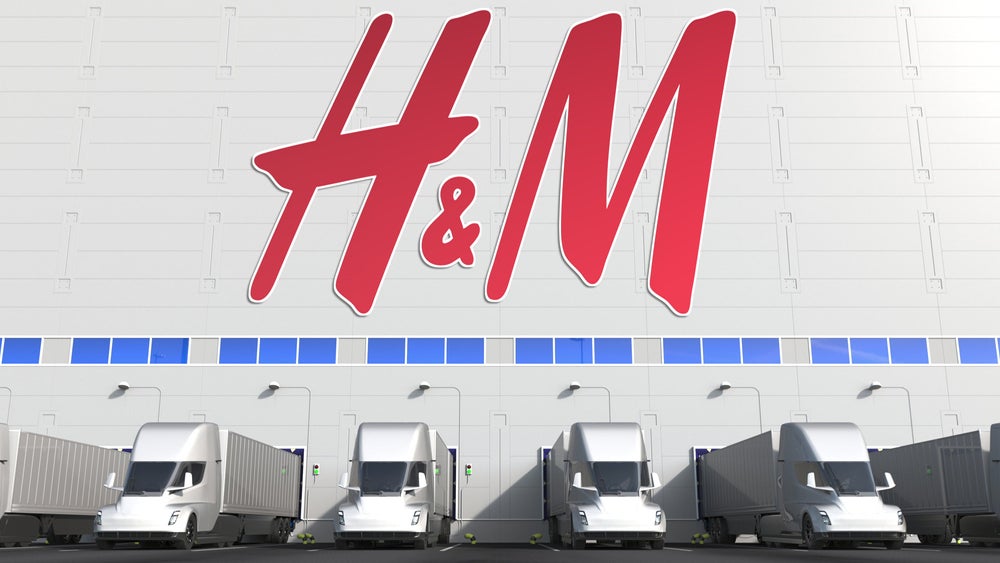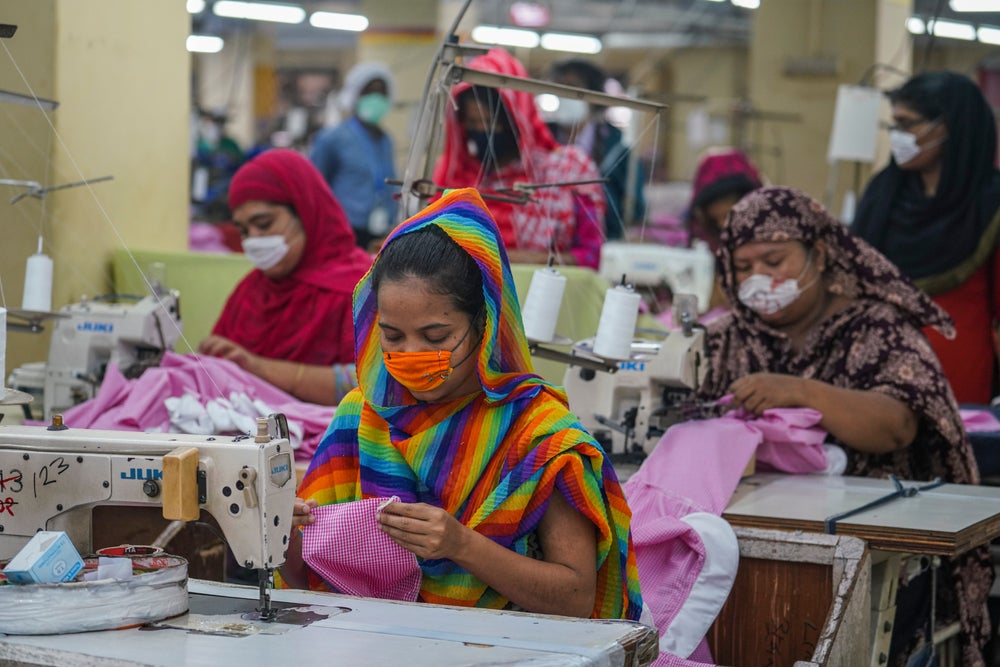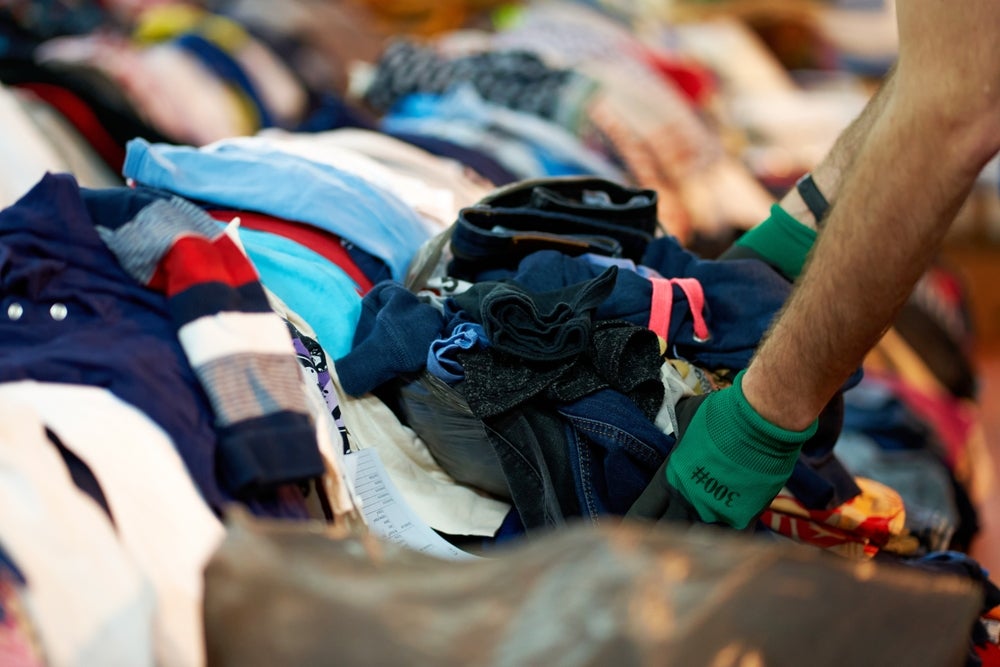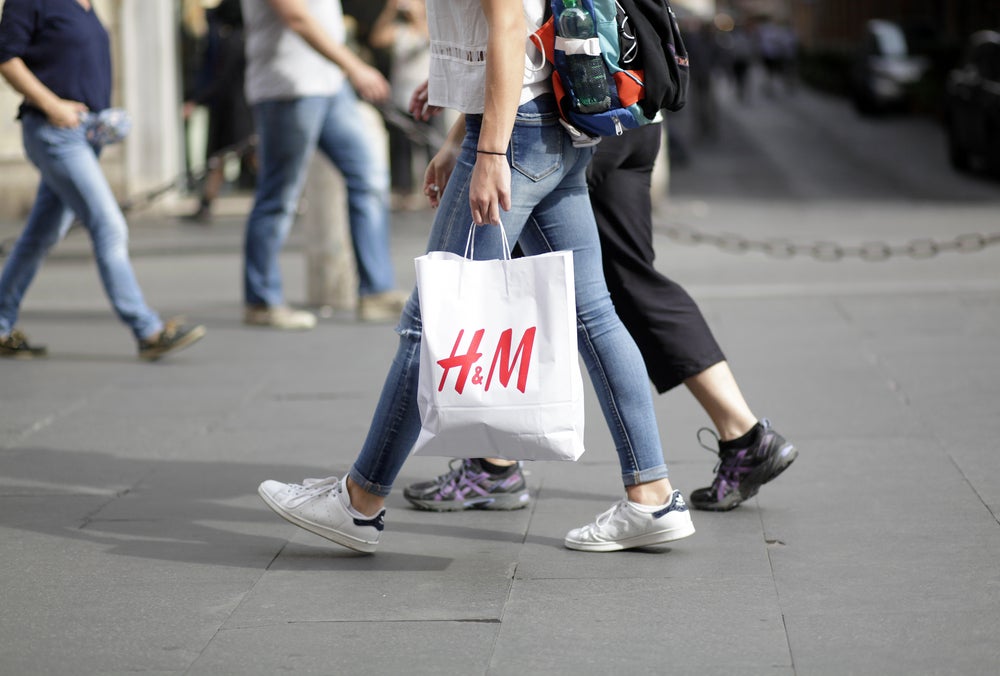Frasers Group has announced plans to purchase SportScheck, “one of the leading sports retailers in Germany”, for an undisclosed amount. The acquisition is said to be part of a wider plan to increase Frasers Group’s presence in the country, which it says is one of the biggest sports markets in Europe.
The transaction is expected to complete in the first quarter to 2024.
Inside the deal
SportScheck has been in the German sportswear and athleisure sector for more than 75 years and has a total of 34 stores across the country. It has an annual revenue of around €350m ($368m) and more than 13 million annual visitors.
Frasers Group believes SportScheck will now benefit from its ‘elevation strategy’, which improves business performance using store concepts, brand relationships and improved digital capabilities.
Shares in Frasers Group have performed well in recent months, increasing by more than a quarter in the past 12 months as it continues to purchase stakes in a number of retailers – including Boohoo and Asos.
In October 2023, Frasers became the largest single shareholder at Boohoo. It has also recently increased its shareholding at Asos, taking more than 20% of the business.
As the SportScheck deal was announced, Frasers Group CEO Michael Murray said: “The German market represents a huge opportunity for us, and we look forward to bringing our experience, resources and relationships to strengthen the SportScheck business."
Here’s why the deal matters
Eleonora Dani, an analyst at ShoreCap, says the deal is significant as it “allows Frasers to expand its presence in Germany”, which is a substantial sports market in Europe.
“The acquisition of SportScheck marks a pivotal step in Frasers Group’s journey towards becoming the top sports retailer in Europe. As a key geography in the sports market, Germany offers a substantial growth opportunity for Frasers,” Dani explains.
GlobalData senior apparel analyst Pippa Stephens agrees and adds the acquisition will allow Frasers to further capitalise on the current outperformance of the sportswear market.
She explains: “Germany’s sportswear market is forecast to grow by 15.7% between 2023 and 2027, compared to 11.1% for total apparel, as it continues to be boosted by consumers’ ongoing desire for comfortable clothing and greater concerns about health and wellbeing following the pandemic.”
Key takeaways for the fashion industry
When the deal was announced, Adidas CEO Bjørn Gulden shared his enthusiasm via a press statement, which welcomed the deal and complemented Frasers Group’s CEO Murray for his “elevation” of the wider group and the Sports Direct retailer.
“The acquisition of SportScheck is another big commitment to the sports industry and a natural evolution in their strategy of becoming a global player. We are fully committed and excited to support Sports Direct on their journey,” Gulden said.
Dani points out this is “indicative of the momentum generated by Frasers’ CEO Michael Murray”. She states: “This endorsement not only strengthens the partnership between Frasers and Adidas but also underlines the strategic significance of the acquisition for both companies. As Frasers moves into Adidas' home market with SportScheck, it sets the stage for intense competition in the German sports retail sector.”
Frasers Group’s Murray welcomed the backing of Adidas, as well as US sports giant Nike – another of the retail group’s strategic partners. “We are delighted to do this with the full support of major global brand partners, Adidas and Nike,” he said. “Growing and expanding our sports business is a key major focus area in becoming an international retail business.”
Stephens believes this support is incredibly important for Frasers Group. She says: “It is also positive that the deal has the backing of two of Frasers Group's biggest brand partners, Nike and Adidas, as it is crucial that it keeps them on side to optimise their relationship going forwards.”
Our signals coverage is powered by GlobalData’s Thematic Engine, which tags millions of data items across six alternative datasets — patents, jobs, deals, company filings, social media mentions and news — to themes, sectors and companies. These signals enhance our predictive capabilities, helping us to identify the most disruptive threats across each of the sectors we cover and the companies best placed to succeed.


